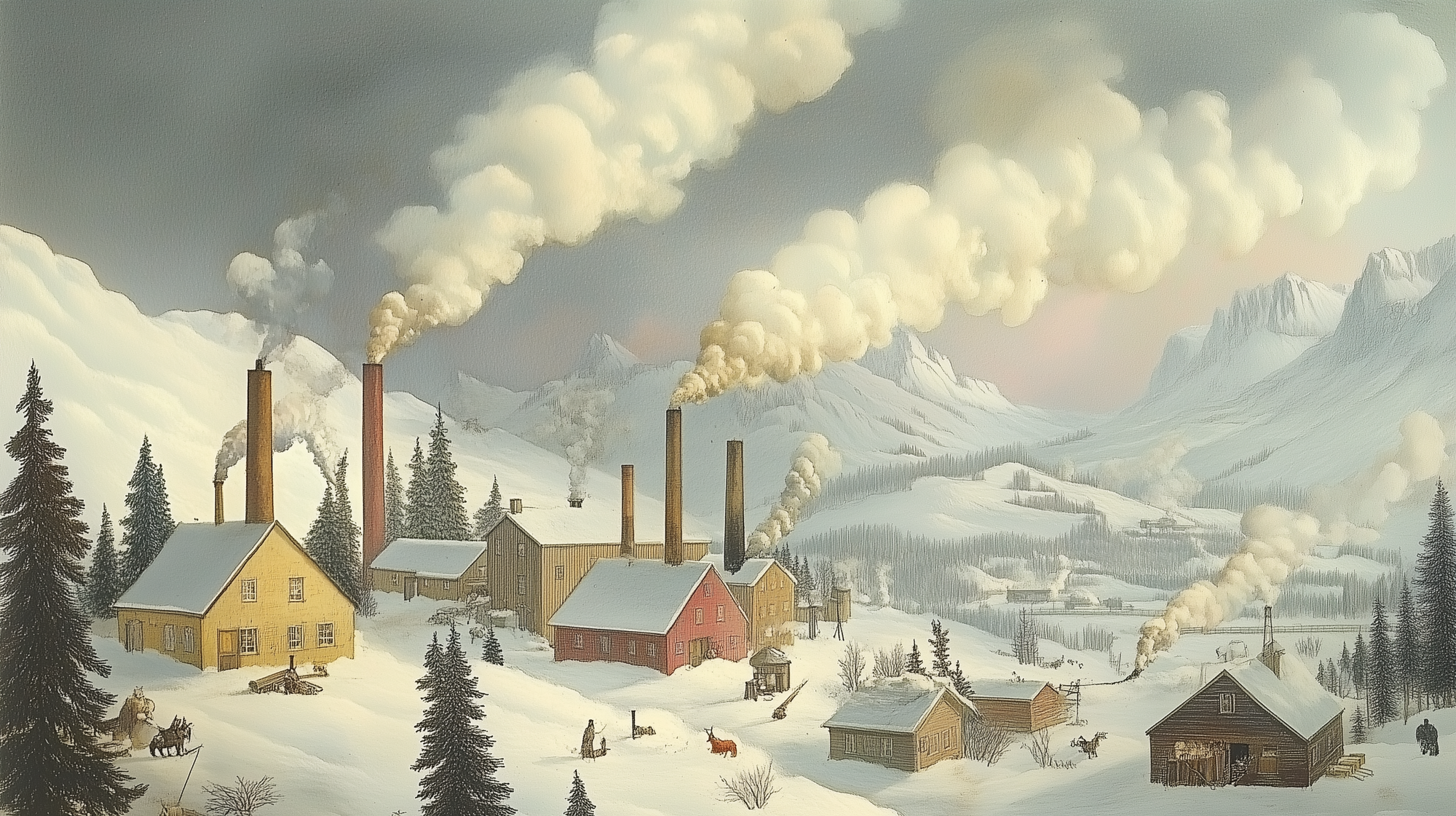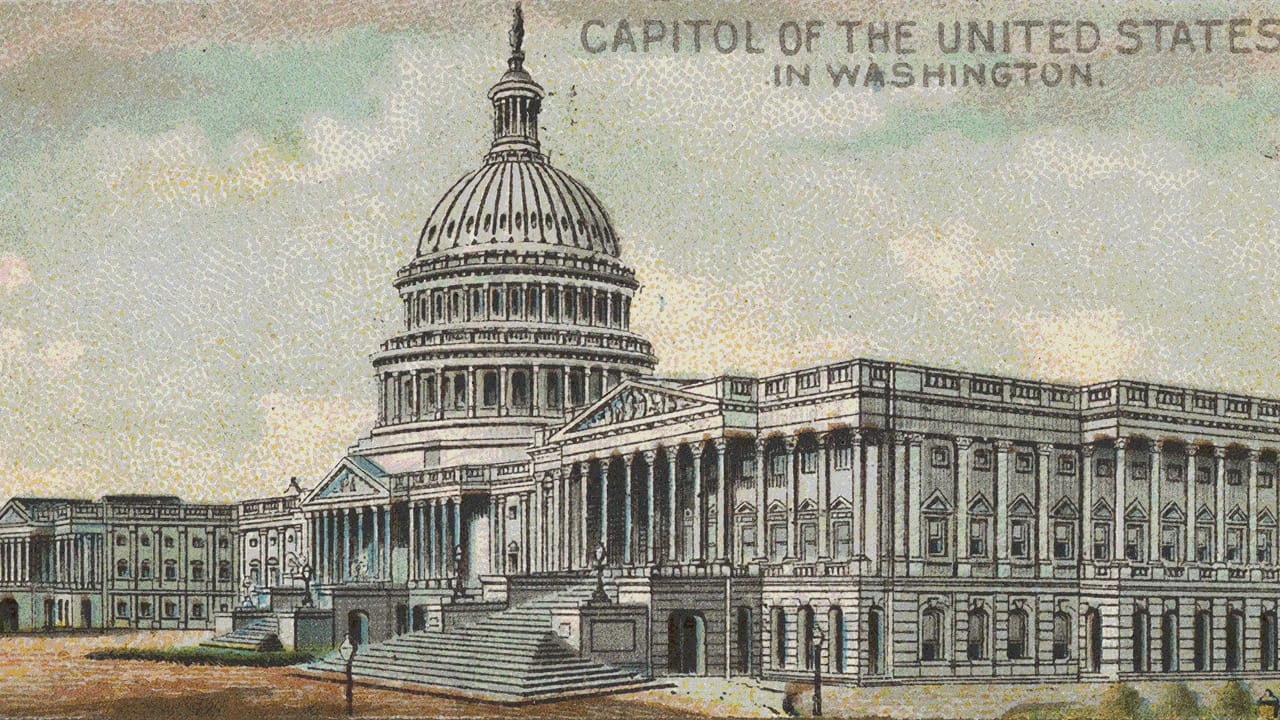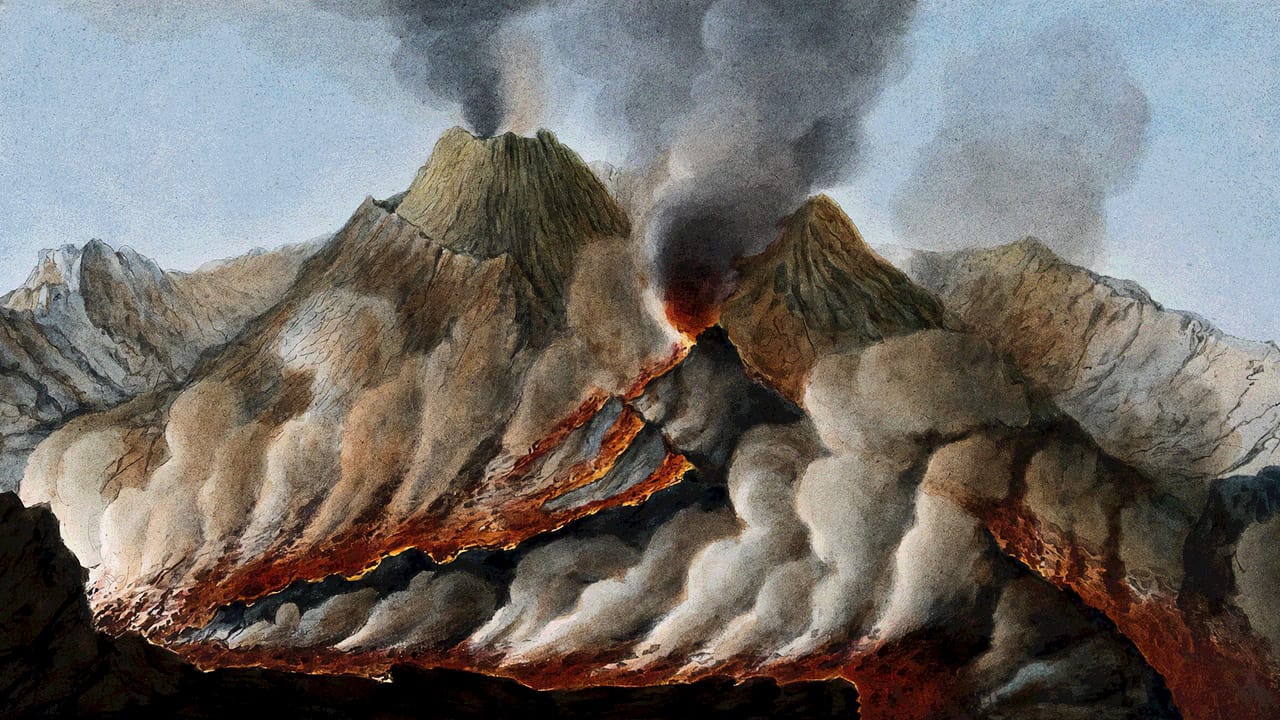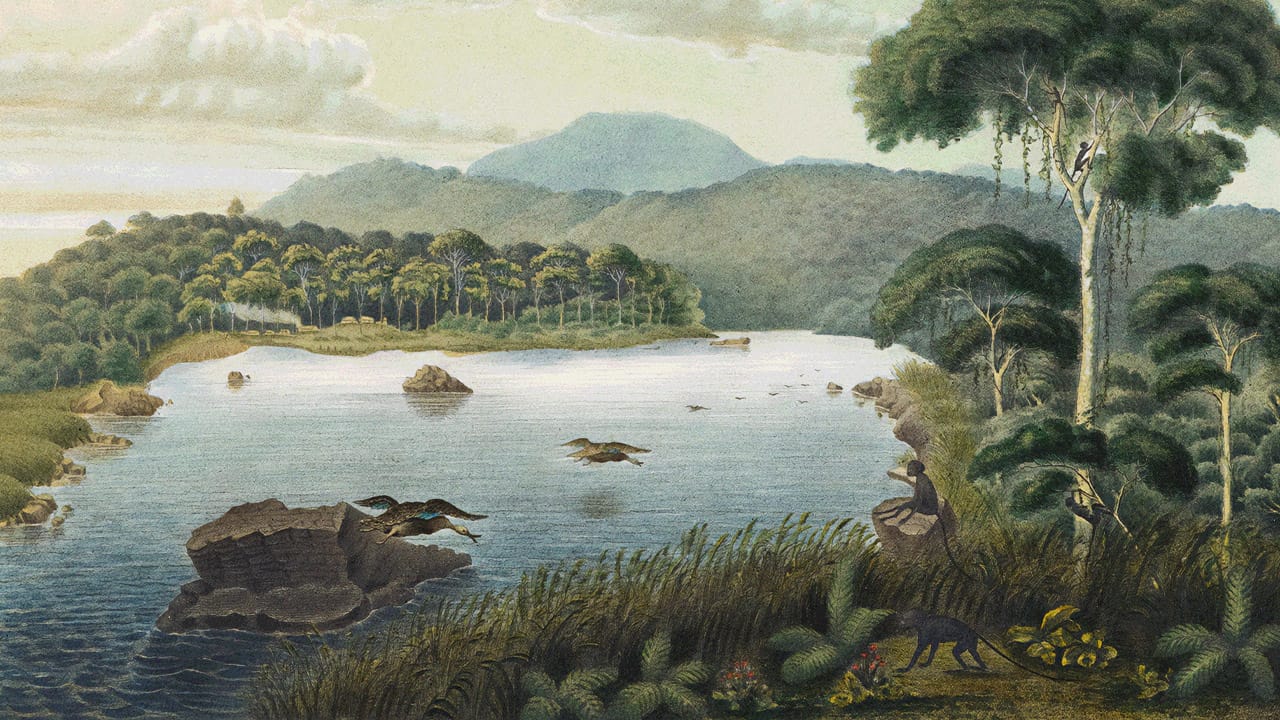Following the Money: Guardian Reporter Dharna Noor on Corporate Climate Language
How industry terminology shapes climate discourse: Guardian fossil fuels reporter examines corporate influence on environmental journalism
Dharna Noor, fossil fuels and climate reporter at The Guardian, interview held January 12, 2024
Dharna Noor is a fossil fuels and climate reporter at The Guardian. Prior to joining The Guardian, Dharna was the Boston Globe's climate producer. She was a staff writer at Earther, Gizmodo's climate vertical, where she also co-produced a season of the podcast Drilled on the fossil fuel industry's influence on education. Before that, she led the climate team at the Real News Network. Her writing has also appeared in publications including In These Times, Jacobin Magazine, and Truthout, and was also featured in a 2021 book from The New Press called The World We Need. She has been interviewed on podcasts and radio programs such as the Times Radio, Vox’s Tell Me More, the Insurgents, and NPR’s Living on Earth. She lives in Baltimore.
Djurdja Jovanovic Padejski: Do you use environmental terms spontaneously, or do you have a process for selecting them for your articles?
Dharna Noor: That's an interesting question. I've been focusing on climate reporting for about seven or eight years, and it's a vocabulary that took me some time to learn. Now, I often use environmental terms relatively spontaneously, but I think that's all based on learned conventions, which also change from publication to publication.
In some cases, it does require intentionality. For example, The Guardian some years ago decided to be the first major publication to eschew using "climate change" in favor of "climate crisis" to more effectively communicate the seriousness of the crisis posed by global warming.
So, for me, every time I use this term, which comes up quite a lot in my reporting, I have to consciously remind myself that "climate crisis" is the term I'll always use. That's not because "climate crisis" doesn't reflect how I feel about the planetary emergency we're facing because of global warming. It's more just that conventions at other publications are different.
For years at the Boston Globe, "climate change" was a perfectly acceptable term to use. Previously at Gizmodo, we would use the terms "climate crisis" and "climate change" interchangeably. That's one place that I think intentionality really comes into the process. There are other terms that I think are used more spontaneously, but that I think could probably stand to be thought through with a little bit more intention.
One example of this is the terms "green energy," "clean energy," "renewable energy," and "carbon-free energy," which are all used fairly interchangeably, even though they can all connote different things. Nobody says that nuclear energy is renewable energy. Is it renewable? I don't know, it depends on who you ask. It's not generally thought of as renewable. It is thought of, depending on who you ask, as clean, and certainly carbon-free.
I think that oftentimes as reporters, we might not realize the things that we are kind of connoting by using terms spontaneously. But I also write a lot of stories, and sometimes spontaneity is the thing that you have to rely on as a writer, especially when you're on a deadline.
DJP: Does it mean that when you report on certain types of energy, like when you mentioned nuclear energy, that carbon-free is not always automatically green?
DN: Yeah. I mean, I think that honestly, for me, especially because a lot of the reporting I do is on public relations campaigns and covert campaigns by the fossil fuel industry to brand certain forms of energy, generally fossil-based energy, in certain ways. I've found myself thinking a lot about the things that are connoted when we use these terms. That doesn't mean that I don't regularly use the terms "green energy" and "clean energy" as a sort of shorthand, especially if you're writing a short story very quickly. But I do believe that we should be thinking more about what "green energy" really is connoting.
Is a solar farm green if it relies on a supply of minerals that came from an already drought-stricken country like Chile? I don't know if that's really an appropriate term to use. "Greenness," obviously, is a term that means one thing if you're exclusively thinking about carbon emissions and something quite different if you're thinking about ecology more broadly.
There is a lot to what we could say about that, but I guess I'll just say that sometimes I do think that it is useful to use shorthand to be understandable to the general public. But I think that journalism, in general, could stand to take a closer look at that shorthand and make sure that we know exactly what it is that we're communicating to the general public when we say things like that because I think we might inadvertently be contributing to the ideas that carbon production from the use of the fuel itself is the only thing that we should consider in thinking about the ecological impact of an energy source.
DJP: That's an excellent answer. Thank you. Related to that, how do you approach the challenge of conveying complex environmental issues, knowing your readership is diverse? It's not like you have a targeted audience and can phrase your stories for them. You have to try to be widely understandable, and the issues are as complex as they can get in this area.
DN: There are many different ways to answer this, based on many different kinds of stories. One thing that I think is really important is just knowing who your audience is and knowing what kind of readers are coming to your stories.
For me at The Guardian, that's a pretty different audience than, for instance, the audience that read my work at The Boston Globe or previously at Gizmodo or The Real News Network.
The Guardian's readership, by and large, is the kind of readers who come to The Guardian's climate stories and environmental stories more broadly, and I think they are a little bit more likely to be specifically interested in the climate crisis as a phenomenon and interested in the intricacies of climate policy and things like this.
Whereas readers at The Boston Globe were more often people who were interested and maybe broadly concerned about planetary crises but might not be following the climate story as closely.
That means that at The Guardian, when I write something like "the Paris Agreement" or "the 2015 Paris Accords," sometimes I'll say, "the groundbreaking international climate negotiations that led to a major international treaty."
But sometimes I can just say "the Paris Agreement" and assume that readers will know what I mean. Not so much at The Boston Globe. I would often find myself having to explain things that a certain kind of reader might find very basic but another kind of reader might find pretty esoteric.
So that's one way to answer the question: just make sure you know how much information the average reader is coming in with.
I don't write a lot of stories that are specifically about climate science these days, but when I did, I had a lot of specific tactics that I would use to try to make sure that climate science was understandable to the general reader. And I still draw on some of them today.
For instance, I'll often ask people who I'm interviewing to use metaphors or analogies that might be helpful to illustrate bigger concepts. That's something that I think has applied more to my reporting on scientific reports, but it applies some to the climate policy stuff, too.
I mean, the other thing I think is just to use clear language that's not based on jargon. So not relying on acronyms, reminding people of what exactly the IPCC is instead of just saying, "According to an IPCC report..."
DJP: Do you feel the challenge in picking the vocabulary, in the sense that it can support the complexity that you need to convey?
DN: I think the vocabulary does exist, but it is sometimes challenging to write in a way that is both thorough and engaging.
If you've got the space to stop and insert three paragraphs into a story that say, "By the way, in case you don't know what that means, here's what it means. Okay, back to the story," that would be much easier.
But you don't normally have that kind of word count, and also, nobody wants to read a story like that.
I think sometimes it's almost a sleight of hand, like a magician's trick, that you need to do to make sure that you're inserting the context when it's necessary.
Having people who are really familiar with either the scientific concepts or the history or the policy context for the story that you're working on can be really useful because there are people in the world who are experts and are much, much more versed in these issues than I am.
Being able to call them up and say, "How would you explain this thing briefly?" is often useful.
I mean, I think that the vocabulary does exist. That doesn't mean it's always easy to convey in a story.
DJP: The more I learn about different environmental issues, the more I worry about how we're going to achieve mass understanding on the level of millions and billions of people—understanding what it means, what we should do, how we can change our behavior and political behavior to prevent the destruction of the Earth and the deaths of millions, which is already happening. I think there's a big gap between scientific work and the general population's understanding, and your work is in between. So, my next question is, do you feel that specific words and phrases that are used regularly in environmental reporting play a role in how readers perceive it?
DN: Yes, definitely, for a number of reasons. One of them is that, in the United States—but I think more broadly also—climate issues have always been a culture war issue for many people.
The language has been very politicized for decades, to the point where even referring to the "climate crisis" can turn off a certain kind of reader who might lean to the right, and they might not take anything that you're saying seriously at all.
So, yeah, I think there's a lot that words convey that reporters aren't always thinking about.
The other thing is we're seeing a huge uptick in the amount of climate reporting coming out of the U.S., which has obvious positives. But I also think it brings up new issues.
For one example, many more stories coming from newspapers' business desks about the climate crisis is probably correlated, as far as I can tell, with an increase in the use of the term "net zero."
"Net zero" is a term that's often thrown around in corporate climate commitments and sometimes even in international policymaking.
But it's something that is really fraught for a lot of people who spend a lot of time thinking about the climate crisis and especially for the climate advocacy world because "net zero" is not the same as zeroing out emissions.
It often comes with an overreliance on things like carbon offsets or carbon capture and storage.
So, I think that maybe, if you're looking to read a story about corporate climate commitments on The Wall Street Journal's website, maybe you know that, but I would venture to guess that there are readers who regularly come across the term "net zero" and don't really know about the fraught history behind its use.
DJP: I think that the general audience doesn't understand that "net zero" is not something that's possible to achieve and what we would need to do to get close to it. When they sprinkle the text with those keywords, they identify themselves in a certain way, but they're not actually committing to anything, and they're contributing to the confusion.
DN: I agree. I think that, in many ways, whether or not it was intentionally done by corporations, it seems very clear that this overreliance on the term "net zero" benefits polluting companies. That is not acknowledged in the vast majority of climate reporting at all.
There are other examples of this. "Carbon footprint" is another one. People talk about the carbon footprint of individuals, the carbon footprint of companies, despite the fact that we know that the term was popularized by BP in an intentional effort to remove the responsibility from the corporate side of things to push responsibility off on individual consumers and distract from the role that they had in fueling the climate crisis.
So I think that there could be a lot more discussion about where these terms are actually coming from and a lot more investigation done into the origin of some of these terms.
DJP: Do you think it's possible, as part of this discourse, to protect yourself from the influence, because the influence is not happening on our conscious level? Even when we're the ones creating the news, we're also part of a discourse as recipients. Do you think that corporate marketing is successful in penetrating the language of the news because they put in so much intentional effort to affect us psychologically, which ends up affecting even the type of work like yours?
DN: Totally. I think the example that I gave earlier about how I and many other reporters kind of throw around the terms "clean" and "green energy" is a pretty good example of the way that kind of thinking has certainly infiltrated even just the most basic ways that we refer to these issues.
Again, I'm not saying that that's some kind of provable link between a fossil fuel industry campaign and the use of "clean" or "green." But it is clear that those are words that have specific meanings and that the fossil fuel industry has indeed promoted a focus exclusively on carbon and not the other ecological effects of energy.
So, yes, I think that that's one way it's infiltrated my work. Has it infiltrated my psyche? I mean, probably.
I think it has an effect on everyone. I'd like to think that the work that I do helps to remove that influence for people, or at least helps them recognize it more. But, I don't know. We all live in the world, so probably.
DJP: When we think of how corporations are "abusing" terminology, which ones would you point out besides "green" and "clean"?
DN: I think it was in a study that Geoffrey Supran published a few years ago, but there was a finding that I think was in Exxon's advertising, where internally the company would refer to oil and gas as fossil fuels, but would publicly talk about oil and gas.
That's something that I'd be really curious about—like refusing to use the terms "fossil fuels" or "fossil fuel-based energy."
I mean, the other obvious one is "natural gas." There's already well-documented evidence that that's an industry term. It's a term that the industry favors. Obviously, "natural gas" has a much nicer sound to it than "methane gas."
I'll think about if there are other words. It's an interesting question.
DJP: The Guardian has a style guide. Can you elaborate a bit regarding environmental reporting?
DN: There are very basic things about style guides, like The Guardian writes "oilwell" as one word, but "oil fields" as two. But then, more importantly, using the terms "climate crisis" instead of "climate change" is a really important aspect of it.
I don't really know the answer to why, honestly. To me, it seems arbitrary, but I'm not sure. That's why I would make the distinction between something that I think is purely grammatical, like the "oilwell/oil fields" distinction, whereas the "climate crisis" decision is more obviously a political thing.
The "oilwell/oil fields" thing is just an example. Some news organizations write "Covid-19" all lowercase. Some use "COVID-19," all uppercase. In some ways, I think that some of these things are arbitrary, and in some ways, I think that some of them are just based on a certain convention that gets passed down.
Like, either we abbreviate based on the number of syllables that come from the complete terms, or we don't. So, in some of these cases, it's a purely grammatical question. In the case of something like choosing the words "climate crisis," that's obviously a political decision. And those are codified and written into the style guide.
There are other things that never get written into the style guide, but just come as the emergent style of a publication. A lot of times that's based on the political and ideological bent of the executive editors, the text editors—like the section editors—and to some extent also the reporters.
For instance, The Guardian is more comfortable using terms like "climate denial" than other news organizations have been.
The Guardian, though there is a very clear line between editorializing and writing the news, is less shy about taking a specific position, which is that fossil fuels need to be phased out and the climate crisis is an emergency that demands immediate attention.
There are other news organizations where even just acknowledging those things would put you in the realm of an opinion writer, but The Guardian is not one of them.
DJP: Does working with such a distinct style guide make your job easier, or is it facilitating the role of an environmental reporter? Do you think all newspapers should have a style guide or clear policy?
DN: I think basically every place has a style guide. Yeah, I think it helps as a reporter. I don't know that it helps more as an environmental reporter than any other kind of reporter, though. It makes the newspaper easier to read if there's a consistent style, but I think that's true across all desks.
The thing that's interesting about The Guardian style guide is that it's also fairly honest about the fact that it sometimes takes a position on things, which other organizations' style guides do on other issues, and I think maybe will start to do more on climate.
For instance, there's been, over the past ten years or so, quite a lot of talk about whether you use terms like "pro-life" or "anti-abortion," and there's been a sort of uptick in the use of the term "anti-abortion" instead of "pro-life" because there's an idea that "pro-life" is not really about supporting life.
We should all be looking for the coded language we're using. There's more to be done everywhere about that. That's a never-ending war because the creators of propaganda like to code language and color it with their own colors indefinitely.
So you can't use it anymore. Yeah. So they take it away. It's very aggressive.
The next frontier of this—I actually mentioned the term "natural gas" before, but I think that could be the next frontier of this kind of style guide change. The Guardian does not use the term "natural gas."
I don't know if that's in the style guide. I'd have to look. But we tend to use the term "gas," sometimes "methane gas."
There are still news organizations that even in articles about the dangers of methane pollution and the dangers of the marketing behind methane pollution use the term "natural gas," which is very obviously an industry-favored term that makes the fuel seem clean, when it is not.
So that's a place that I think we could see a lot more movement and should see a lot more movement. It's a really interesting way into the issues more broadly.
I feel like if you start thinking about the language we're using to think about these issues, it becomes really clear who has the power to shape the discourse.
It is important to acknowledge the politics of making these choices. It's also important to use language that's understandable.
If The Guardian uses the term "climate crisis" instead of "climate change," I think basically everybody who knows what "climate change" is understands what "climate crisis" means.
But if The Guardian suddenly started using terms like "ecological emergency," that might be technically accurate, but it might not connote a focus on specifically the global warming effects of greenhouse gas emissions.
The political choices in your linguistics should not come at the expense of people understanding what it is that you're talking about.
DJP: I often use the example of feedback to start a conversation about scientific language and journalism. It is confusing when a huge catastrophe happens and we call it "positive feedback." If the writer doesn't explain it, many readers will not understand it at all. In general, the entire environmental loop is incredibly complicated, and there are many more examples like this one.
DN: I've definitely noticed that too, and I have mentioned that I used to focus more on writing about scientific studies. I don't do that as much anymore, but it is definitely a thing that came up.
Decoding the way that academics speak about their own work is challenging, especially because academics, especially scientists, are often not encouraged to think about the political trappings or implications of their work.
That means that oftentimes you talk to scientists who insist that there is no political implication behind the studies that they're putting out in the world, which may be, in some cases, true. But I would not want to live in a world where that's true.
That, I think, is a really important time to remember to use the kind of language that makes sense to ordinary people. Your role as a journalist is often to both decode and quote, which puts you in a weird position.
You're not going to change what somebody told you, but you might have to translate it. Finding ways to do that elegantly is important.
DJP: In your writing, do you consider the implications of attributing or not attributing agency to different stakeholders in environmental narratives?
DN: Definitely. I work to consider the agency of all stakeholders, always, and I think that doesn't mean there's not more to be done here.
One way that The Guardian specifically differs from some other news organizations is that there's no problem having a story that mostly quotes people who have made their opinions clear.
So whether that's climate advocates or people who do scholarship and activism, it's perfectly fine to have stories that mostly cite those folks.
That, I think, is one way that you can remind readers that people other than fossil fuel companies have agency.
The other thing that this brings up is the use of active voice, which is both a grammatical choice and, I think, a political one.
For instance, saying "Fossil fuel companies specifically have warmed the Earth by X amount" is very different than saying "The world has warmed X amount because of people's use of oil and gas."
So, every time you write a sentence that involves something happening, it's important to consider the implications for who has agency—who you're making the subject and the object of the sentence.
We're seeing a very similar conversation happening about the war in Gaza and whether Palestinians are dying or whether they are killed.
This reminds me of the famous Utah Phillips quote, "The Earth is not dying. It's being killed. And those who are killing it have names and addresses."
I think about that often when I read something that says, "Kids died after breathing in air pollution," not "Kids died after being exposed to pollution put in their neighborhoods by X company."
DJP: In your opinion, what is the most important environmental issue the media should address today?
DN: Honestly, I was going to try to come up with an answer that was more novel, but the honest answer is exactly what we're talking about. I think the most important issue is holding specific actors accountable.
That means more investigation, and that means speaking more carefully. It also means questioning industry practices.
For instance, it's not a coincidence that polluting companies often place their facilities very close to one another. That has the effect of making it very difficult to attribute illnesses that arise in that community to any specific facility or plant.
The way that that gets discussed sometimes in reporting is, "We can't attribute it because we don't know for sure," but there's a lot more to be said about why these facilities all get placed in the same locations. I think there's something to be questioned there.
I would extend this also to looking at the actors behind not only carbon pollution, but ecological damage and the exploitation of not only resources but people more broadly.
I wouldn't only extend that to Exxon and Shell. I think that solar companies need to be met with the same kind of scrutiny, and so do those extracting the resources to produce batteries and wind turbines.
And not only when it becomes about exploiting natural resources, but also when it becomes about horrible labor practices. I think that these all need to be tied up in the way that specific actors exploit specific resources and specific people. That needs to be a part of every climate story.
DJP: We're in complete agreement. It is about accountability. Do you think, how much space is given to this issue right now in the news? And what is the general tone of reporting about this issue?
DN: Some space is definitely given to this issue.
It's funny, like, I think part of the roadblock here is not even a lack of interest from newsrooms in a political sense.
It's not just that there are so many newsrooms that are accepting advertising dollars from the fossil fuel industry, and that means that there's less of a focus on accountability.
I don't think that that's untrue, but also, it's just as much part of the story that there are fewer resources in journalism every day for deep investigative reporting. That takes a lot of time, takes a lot of money, requires travel, and requires paying for FOIAs, and things like that.
There is some focus, definitely, on accountability, especially on the kinds of outlets that do accountability reporting and investigative reporting specifically.
But I don't think that if we are going to live in a good climate media ecosystem, those questions can be siloed to only investigative reporters. They need to be folded into all kinds of climate stories.
We can't have puff pieces about oil companies' climate plans and also say that we're doing our diligence on climate accountability. It needs to be folded into all climate stories.
DJP: Do you think that's what we do with all the major issues? We silo them. We tend to leave those very complicated things to investigative journalism, knowing very well that a mass audience is not reading investigative pieces because they're long and demanding and time-consuming, and hard to understand. So, even though nonprofit journalism and investigative journalism are doing an amazing job in this country, it's inadvertently helping fossil fuel companies because the way to address very difficult issues is not easy to consume?
DN: I think certain kinds of investigative journalism do break through. Even though it's siloed, there are elements of it that break through to a wider audience. But I don't think that we can just wait for those moments to happen.
Frankly, I think that newsrooms need to make sure that all of their reporting is informed by the best available science and the best available research, and that includes research from journalistic outfits.
I mean, I keep coming back to this, but if we have evidence based on investigative reporting and scholarship that the term "carbon footprint" was popularized by BP, there's just no reason that, at the very least, it should go unquestioned for "carbon footprint" to still be a term that appears in all kinds of environmental stories.
I think breaking it out of the silos doesn't only mean making sure that there are shorter, more accessible pieces. Although I think that would be good, I think it also means making sure that the lessons that are learned in those stories get applied to the newsroom at large.
DJP: What are the most important environmental terms that you currently find significant and why?
DN: One of them, I think, is "fossil fuels." The reason why is because we know that the use of fossil fuels is, by far, the leading driver of the climate crisis and refusing to state that only contributes to the narrative that this is just a crisis that came from nowhere and we're just subject to the changing forces of nature.
To that point, I think another one is "corporations." It's very difficult to speak accurately about environmental issues at large without reminding people that there are specific firms that are primarily responsible for this crisis.
Another term that I would say is really important, but that I feel negatively about, is the term "human-caused climate change."
Even though it obviously has a meaning—it was definitely the actions of humans that got us into this place—for a long time, I think news organizations found it to be very radical to refer to "human-caused climate change" because it acknowledged anthropogenic emissions as being the primary driver of this crisis.
I think "human-caused climate change" contributes to the idea that all people are equally responsible and that climate change is not something that came from a very specific set of social relations.
The people who work for oil companies in the lower ranks, people who work in oil fields, are not the ones who are primarily responsible for emissions, and neither are people who drive cars. It's the people at the top of these corporations who specifically should be held accountable.
Maybe another term then is "accountability." I think that any story about an environmental issue should, at the very least, do some work to name the actors who should be held accountable and possibly should even look into the efforts to hold them accountable, which do exist.
There are policies aimed at accountability; there are lawsuits; there are activist campaigns. We shouldn't pretend that that work isn't happening.
And then, I don't know, I'm trying to think of what the terms would be, but the other thing that I think is kind of a lot more absent than it should be is a focus on human flourishing.
I think that we still get into a headspace in environmental reporting where we think about addressing the climate crisis as something that would require some huge form of eco-austerity, would require us all to just give up driving the cars that we like and eating the foods that we like, and we don't focus on the way that people's lives would be improved by being able to take a bus to work or being able to have access to green spaces.
There's plenty of evidence that having a shorter work week, for instance, could lead to a decrease in emissions.
Who is going to feel that it is an austerity measure to have people be paid the same and work less?
I guess there is the term "flourishing," but generally I think that focus on the ability to improve people's lives while we tackle this crisis and by tackling the crisis is something that's relatively absent.
I think "plastic" is a very important term because speaking about energy as a use for fossil fuels only shows part of the full picture.
There's plenty of evidence that fossil fuel companies have found lots of off-ramps that they can take, even if there are some kind of huge policies to take on emissions from energy.
I think "plastic" is one important example of that, but more broadly, it is a way to illustrate the many ways that planet-warming fuels have infiltrated every part of the global economy.
DJP: How do you see your own role in shaping the public discourse on environmental topics? Do you see yourself as your role is only to inform people, or also to educate or to be involved in some kind of activism? It's a kind of spectrum.
DN: Definitely to inform people, definitely to educate. I don't think that I am involved in activism, honestly, not because I think there would be something wrong with it.
I would hope that I'm able to give people the tools to act. The reason that I try to maintain distance is not because I think there's something bad about activism, it's because I want to maintain my ability to critique activism as I see necessary—to critique not activism as a whole, but specific activist projects in a way that you cannot really do from the inside.
I think that as a journalist, it's really important to be able to assess the effectiveness of certain kinds of campaigns and things like this.
But certainly, to educate, certainly to inform. And I would hope that it gives other people the tools to change their conditions, whether that's by grassroots campaigns or by policy measures at the ballot box.
Whatever people think is the most effective way to change their conditions, they should do. I think we need some of all of it, but I hope to give them the tools to do it.
DJP: What do you think about the relationship between environmental and political and economic challenges? Do you find this relationship adversarial, or is there some modus operandi that you can imagine in which those issues would not be competitive?
DN: Is there a tension between meeting our environmental goals and our economic goals? There is tension.
But that's not because it was ordained by God that there be a tension. I've said already that I think there's very little done to highlight the ways that climate action could improve people's lives. There's no particular need to frame all climate questions in terms of austerity, in terms of taking things away from people.
But that is the world we live in. So right now there is tension.
I mean, I think in some ways some parts of that are starting to fall away. For so long in the United States, there was this huge myth that we can either have job creation or we can have climate policies.
That myth is, I think, starting to evaporate quickly. People are starting to realize that there are real jobs that can be created by the transition away from fossil fuels. That's great.
But also, in order to actually realize both of those goals in a way that is good for people, we need to make sure that the economic conditions of new jobs are very good.
I think the movement for a Green New Deal put this question on the map for a lot of people in the United States by linking social and economic justice and climate justice.
So I think there is a little bit more consideration of it. But I do, yeah, I mean, I think that the tension is still present. I guess I just, I wish it wasn't because it doesn't have to be.
DJP: How much do you think ownership in the media and advertisers' influence affect environmental reporting?
DN: I don't know the answer to this question. I have never been at the executive level in a news organization.
What I do know is that there's lots of research that shows that it's really hard to bite the hand that feeds you.
There's research that shows that if you're doing scholarship on the effects of the cigarette industry, you're going to be less critical of the role that tobacco plays in giving people cancer than people who aren't.
There's research that shows that scholarship funded by the gas industry is a lot more likely to be favorable toward gas industry-favored climate solutions.
I don't have any particular proof that funding from the fossil fuel sector or any sort of ownership has had a bearing on climate reporting in that way.
But I think that journalists would be foolish to think that they're exempt from the same rules that govern everyone else.
I also think that the way that things appear is important. This is a thing that I have had conversations about with people who I have worked for in my career.
The idea that even if a reader is not necessarily going to believe you if you say, "Oh, yes, this was funded by this group, but it has no bearing on the things that I'm writing," you should take that visibility seriously.
You should take it seriously, and you should try to remove even the appearance of a conflict.
DJP: And finally, a little free association experiment. I'm just going to tell you some words one by one. And then you're going to say whatever first comes to your mind.
DJP: Resource.
DN: Extraction.
DJP: Landscape.
DN: Beauty.
DJP: Nature.
DN: So many different words come to mind. Nature. Society, I guess, is the first one.
DJP: Complexity.
DN: A diversity.
DJP: Socio-ecological systems.
DN: Capitalism.
DJP: Pipeline.
DN: Oil.
DJP: Carbon footprint.
DN: BP.
DJP: Environmental justice.
DN: The first word that came to mind is justice, but I guess that doesn't really count. Freedom, I guess, is the other first word that came to mind.
DJP: Pollution.
DN: Air.
DJP: Fish stock.
DN: Uh, ecology. I feel like I'm doing a bad job of this somehow.
DJP: Climate deniers.
DN: Climate delayers.








